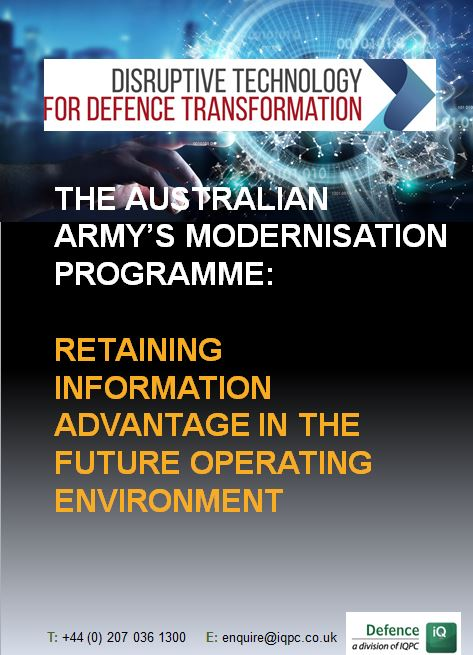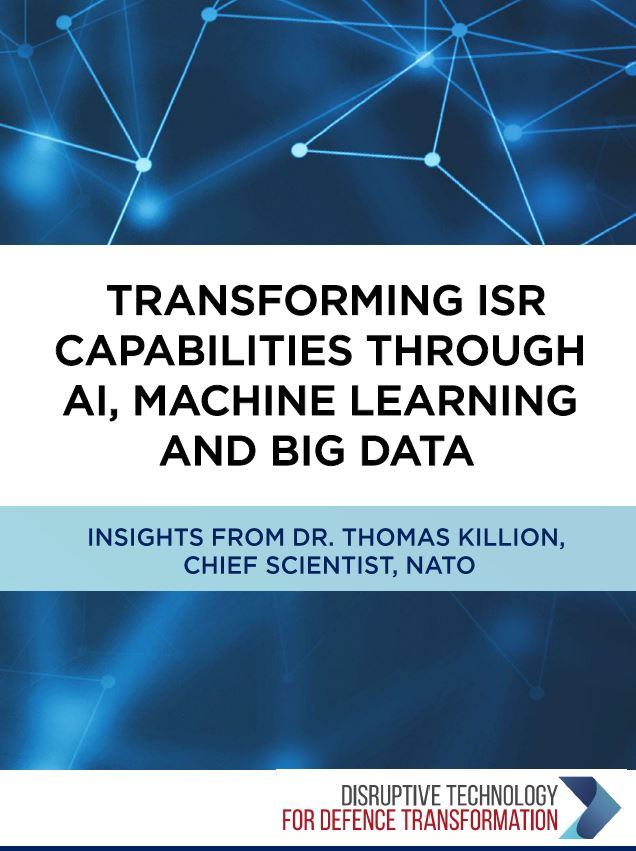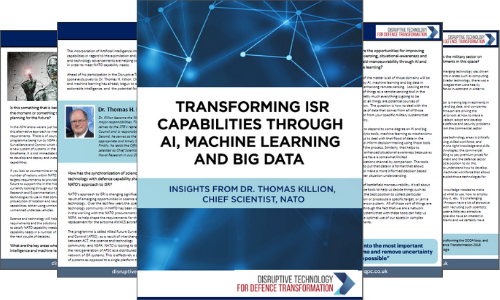Interviews

Accelerating Future Armour Technologies, Interview with James Gavin Future Capability Head, DE&S UK MoD
The FCG plays an integral role in integrating some of the most cutting-edge technologies in the market into the defence domain. James Gavin gives insight into how the FCG operates and how start-ups can play a more significant role in defence. This interview:
- Describes the relationship between the FCG and start-ups
- Goes through some of the technologies and strategies that have caught the attention of FCG
- Emphasis on how conferences such as DTDT are essential for start-ups and government organisations

Empowering UK Innovation Interview with Mr William Green, Head Innovation Directorate UK MoD
Defence has been a great source of innovation for centuries, but the question on how to best exploit this remains. In this interview, William Green shares his views as the Head of the Innovation directorate on best practices but also on the challenges of creating an MoD culture of innovation. An essential piece of reading for anyone interested in harnessing innovation.

Integrating autonomy in the Royal Navy
The Royal Navy is a leading example of technological development, as the service has been injected a total of £75 million destined for innovative projects. One, allocated £45 million, is the hi-tech accelerator NavyX, a joint project between industry and the military to transform the procurement process of Maritime UxV.
Ahead of this year’s Disruptive Technology for Defence Transformation, once more chaired by General Sir Richard Barrons, Defence IQ had the opportunity to discuss with Colonel Dan Cheesman, Chief Technology Officer, Royal Navy, a key speaker of this year's event.
Download the interview now >>
In this exclusive interview, Colonel Cheesman answers the following questions:
- The Unmanned Warrior, Commando Warrior and Information Warrior exercises all show the willingness and focus of the Royal Navy to operate unmanned systems, robotics and increase the efficiency of information-sharing. What have these exercises demonstrated in terms of integrating new technologies with existing systems in the Royal Navy?
- What measures are you taking in order to block any attempts by potential adversaries to hijack or to hack into the app through its operators?
- What main challenges need to be overcome in order to integrate a manned-unmanned autonomous capability for the Royal Navy?
- £45 million has been injected in the creation of hi-tech accelerator NavyX. What is its ultimate goal? What are its near, mid and long term plans to achieve it?
- How do you envision the collaboration between industry and military in order for the Royal Navy to harness cutting-edge equipment?
At this year’s Disruptive Technology for Defence Transformation, Colonel Dan Cheesman will deliver a presentation on the maritime autonomy accelerator and NavyX. You can find out more about his presentation here.
Read a preview of the interview below:
Defence IQ: The Unmanned Warrior, Commando Warrior and Information Warrior exercises all show the willingness and focus of the Royal Navy to operate unmanned systems, robotics and increase the efficiency of information-sharing. What have these exercises demonstrated in terms of integrating new technologies with existing systems in the Royal Navy?
Colonel Cheesman: We have taken an approach that is relatively unique, and that is to look at the total system from the outset. The software backend, the networks and the autonomous vehicles are all being designed as a whole. We look at it with the point that unless they interface with the warfighter, unless they are easily adoptable into the frontline, then...

The Australian Army's modernisation programme: Retaining information advantage in the future operating environment
One focus of the Australian Army’s massive modernisation programme is to leverage emerging technologies and disruptive innovations to enhance ISR capabilities across the joint force. Download this interview with Brigadier Ian Langford, Director General Future Land Warfare of the Australian Army and speaker at this year’s Disruptive Technology for Defence Transformation conference to learn more about:
- The Australian Army’s near, mid and long-term capability development vision to retain the information advantage in the future operating environment
- The technological enablers/disruptive innovation that will enable the Australian Army to maintain the competitive edge in hybrid warfare
- How the digitisation of current C3 systems will impact the ISR capabilities of the Australian Army

Transforming ISR capabilities through AI, Machine Learning and Big Data
The incorporation of Artificial Intelligence into defence strategies has already begun to transform NATO’s ISR capabilities and shape both the requirements and solutions for new approaches in order to meet NATO capability needs - Defence IQ spoke exclusively to Dr. Thomas H. Killion, Chief Scientist, NATO to find out more!
Download your copy of the interview on the right >>
Alternatively, email enquire@defenceiq.com and we'll send you a copy!

Ahead of his participation in the Disruptive Technology for Defence Transformation Conference, Defence IQ spoke exclusively to Dr. Thomas H. Killion, Chief Scientist, NATO about:
- Key areas where artificial intelligence and machine learning has already begun to enhance military decision-making and accelerate the acquisition of actionable intelligence
- Potential for these technologies to revolutionise the ISR space in the future



